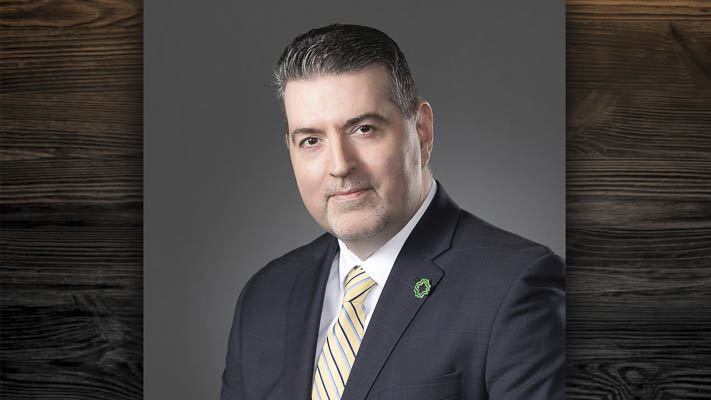
WaFd Bank manager from Vancouver shares his expertise
Sean Monaghan
for Clark County Today
Although life can be pretty unpredictable, tax season can offer a bit more financial certainty if you are one of the many who are receiving a refund. Here are some possible ways you can spend — or save — the money from your tax return, along with a few things to think twice about before making a decision.
Save as much as possible
If you do receive a tax refund, consider putting most or all of it into a savings account. It is also a good idea to look at your monthly budget and commit to saving a certain amount of money each month for extra financial security, even if it is just $20. Many financial experts recommend having enough savings to cover three to six months of living expenses. Your savings can also cover unexpected expenses such as medical bills or home or car repairs.
If you are looking to open a new savings or money market account, make sure to read the terms and conditions and, more importantly, compare by researching account options at different banks. Pay close attention to monthly fees, interest rates, minimum balance requirements, and the cost to open an account.
Pay off your debts
Another path you could take toward financial freedom is using your tax refund to help pay off credit cards, student loans, medical bills, or other high-interest debt. To avoid paying interest, do your best to pay off your credit card balance each month or make payments over and above the minimum that is required.
Make improvements to your home
Protecting your home and other large assets involves a little tender loving care. Think about using your tax refund to make improvements to your home. These efforts can pay big dividends in the future by increasing your home’s resale value. Or replacing appliances, equipment, or windows with more efficient options could save you money every month by reducing energy costs — you might even be eligible for energy efficiency rebates through your power company.
Contribute to a college savings plan
Contributing to your child’s college savings plan is a smart investment. Depending on the plan you choose and the state you live in, you could be eligible for an annual tax deduction or credit. Currently, you can contribute up to $2,000 (after taxes) annually per child. When the funds are withdrawn, they are tax-free.
Prepare for retirement
Planning for your financial future starts now. When you get your tax refund, you may want to add money to your retirement account. If you are starting a new retirement account, make sure to do your homework because there are different rules and restrictions for each type of account, such as the maximum amount you can contribute annually.
Donate to a good cause
The past few years have been financially taxing on many individuals, families, and businesses across the country. If you are in a comfortable financial position, consider donating all or some of your tax refund to a good cause, such as a food bank or a local nonprofit. You might be able to claim your donation on your next tax return but always double-check with a financial advisor to be sure.
What not to do with your tax refund
Basically, try not to overspend or splurge too much. There’s nothing wrong with treating yourself, but think about whether it is really something you want to do and will still be worth it in a few months or if it is more of an impulse thing. Although it is fun in the moment to get something nice, any debts and payments you might have to make will still be there afterward. Consider spending your refund on necessary purchases or putting it into your savings account for emergencies instead. Your future self will thank you.
Sean Monaghan is a WaFd Bank vice president and the branch manager at the Washington Street location in Vancouver.
Also read:
- WA among states suing Trump administration over health care, educationWashington joins a 20-state lawsuit challenging new Trump administration rules that tie immigration status checks to access for health, education, and social service programs.
- Expect delays on SR 503 in Clark County, July 21-24WSDOT crews will remove brush and danger trees along SR 503 near Amboy from July 21–24, with lane closures and delays expected each day from 8 a.m. to 4 p.m.
- August 5 primary voting begins in 37 countiesVoting is now underway for the Aug. 5 primary in 37 Washington counties, covering 239 races and 59 local measures. Most voters must return ballots by Election Day.
- Expect overnight delays on I-205 in Clark County for utility work, July 21WSDOT will close the left lane of southbound I-205 near Fourth Plain Blvd overnight July 21 for traffic sensor maintenance. Drivers should expect delays and follow posted signs.
- Opinion: ‘Freedom of speech doesn’t mean freedom from consequences of that speech’Editor Ken Vance weighs in on the First Amendment, suggesting freedom of speech does not mean freedom from its consequences, especially for public employees.
- 17-year-old female dies in fatal two-vehicle collisionA 17-year-old girl has died following a two-vehicle crash Saturday morning near SE 20th St and SE 352nd Ave. CCSO detectives continue to investigate the cause.
- Letter: ‘Light rail is a debt bomb that just keeps going off!’Anna Miller warns Clark County residents that light rail projects like those in California are costly failures, calling them “debt bombs” and urging local officials to stop expansion.











